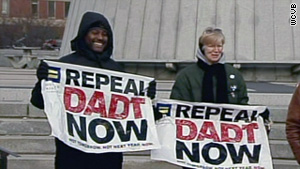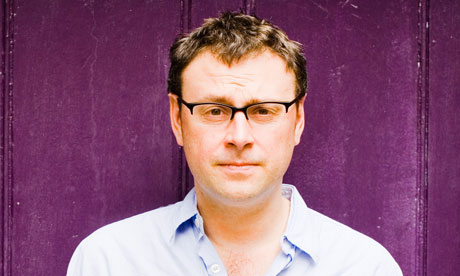In the summer of 1963, six years before the uprisings at the Stonewall Inn, a writer named Randy Lloyd published a startling cover story in ONE, the first American magazine about homosexuals and politics. The article was headlined “LET’S PUSH HOMOPHILE MARRIAGE.” Among New York’s gay cognoscenti, marriage between two men or two women was not completely unknown—the historian George Chauncey writes of “elaborate” same-sex weddings in storefront churches in Harlem as early as the nineteen-twenties—but these were underground, unsanctioned ceremonies. They affirmed a relationship to a small circle, but did not assert the legal and moral equality of the participants.
Lloyd declared that he was dissatisfied with the single life. “There are many homophiles who, like me, find the homophile married life so much more preferable, ethically superior, enjoyable, exciting, less responsibility-ridden,” he wrote in his wry essay. “The truth is, many of us married homophiles regard our way of life as much, much superior and, as a consequence, mainly stick to ourselves and look down our noses at the trouble-causing, time-wasting, money-scattering, frantically promiscuous, bar-cruising, tearoom peeping, street crotch-watching, bathhouse-towel-twitching, and movie house-nervous-knee single set.”Lloyd was not writing about legal marriage; that was scarcely imaginable to anyone. In a half-facetious voice, he was trying to provoke an argument among his gay readership. Especially in those days, the idea of marriage—monogamous, conventional, and bourgeois—was not an aspiration universally held among gay men and lesbians. Far from it. Within a few years, many lesbian feminists, for instance, had begun to see conventional marriage as a patriarchal prison. Why pursue it as part of an agenda of liberation?
But, as the movement developed, the assertion of equality came to be as essential as the protection of difference. Preachers like Jerry Falwell and Pat Robertson made homophobia a tenet of the Republican Party’s powerful right wing. Amid the AIDS epidemic, countless gay men discovered that they had no rights concerning their loved ones when it came to medical decisions, estates, burials, and health insurance. Lesbian couples discovered the legal vulnerability of their families when they had children together. The option of marriage, particularly as the legal and cultural locus of family rights, became an increasingly central concern of the gay-rights movement.
On the tense night of June 24th this year, the New York State Senate, that redoubt of corruption and double-dealing, roused itself to become a center of conscience. Legislators, including a decisive handful of Republicans from the Hudson Valley, Rochester, and Buffalo, voted to legalize what was once nearly unthinkable, even to Randy Lloyd. The loudest celebrations that night were on the streets and in the bars of Greenwich Village, but this was a moment for exultation far beyond Sheridan Square. The decision to legalize single-sex marriage in the State of New York, coupled with news of a new Gallup poll showing that more than half of Americans favor gay marriage, seemed sure to lead to a wider legal acceptance.
The gay-rights movement has, in many respects, mirrored the black freedom movement, but in hyper-speed. In the mid-nineties, not a single state allowed for civil unions or domestic-partnership registries. The political calculus of same-sex marriage was such that a Democratic President, Bill Clinton, buckled noiselessly to the demands of Congress, signing the 1996 Defense of Marriage Act (DOMA), which forbids federal recognition of such marriages and sharply limits the significance of state legislation.
As in the drama of civil rights, advances have been regularly attended by backlash. In 2003, the Supreme Judicial Court of Massachusetts ruled that same-sex couples were entitled to the benefits of marriage. This galvanized a movement already under way to limit marriage to a man and a woman; ultimately, twenty-nine states sought to head off more such rulings by passing constitutional amendments barring gay marriage, and twelve others passed restrictive legislation. In Iowa last year, conservatives waged a successful campaign to unseat three judges precisely because they had ruled in favor of marriage equality.
Indeed, many in the Republican Party, particularly its evangelical base, still believe that the issue is a winner for them. They may not think so for much longer. The Gallup Poll shows that seventy per cent of people between eighteen and thirty-four years old favor gay marriage. The tide of history and public opinion has turned decisively.
Just as the civil-rights movement had many kinds of heroes—radical agitators and mainstream institution builders—the drama of marriage rights has found a perhaps unlikely star in Andrew Cuomo. During the gubernatorial campaign last year, Cuomo was widely thought to possess a measure of self-regard even greater than that of his predecessor Eliot Spitzer. Yet Cuomo soon proved that he had the maturity and the horse sense to learn from Spitzer’s missteps; he began his term in January not with stentorian declarations of war but, rather, by identifying crucial goals and then employing time-honored political means to achieve them—intelligently, methodically, and successfully. There was nothing majestic about this process. Cuomo used the standard levers of political pressure more than moral suasion. His was a victory for progressivism through ultra-traditional means.
At the moment, the legal situation in California is in a lull, and it may be a while before the Supreme Court is required to pass judgment on the Defense of Marriage Act. But many advocates for same-sex marriage, including the liberal-conservative tandem of David Boies and Theodore Olson, see cause for hope. In the 2003 case of Lawrence v. Texas, the Supreme Court extended privacy rights to gay men and lesbians; a majority of justices held that an earlier, contrary decision, Bowers v. Hardwick (1986), “demeans the lives of homosexual persons.” Antonin Scalia, in his dissent, warned darkly that the next outrage to come would be gay marriage.
The author of the Lawrence opinion was Justice Anthony Kennedy. Boies and Olson are cautiously optimistic that if a well-conceived case on gay marriage reached the court Kennedy would join the four liberal justices, Breyer, Ginsburg, Kagan, and Sotomayor. We can hope that President Obama, for his part, will not wait for such a moment to tell us where his own “evolving” views on the issue have led him.
The struggle for marriage equality doesn’t require that everyone subscribe to a new norm; cynicism about marriage is as old as the institution itself, and skeptics, both gay and straight, will never be in short supply. Still, the advances made since the days of Randy Lloyd’s “homophile marriage” provocation have been remarkable, even thrilling. The struggle for marriage equality is about more than the definition of marriage; it’s about the definition of justice. ♦




















